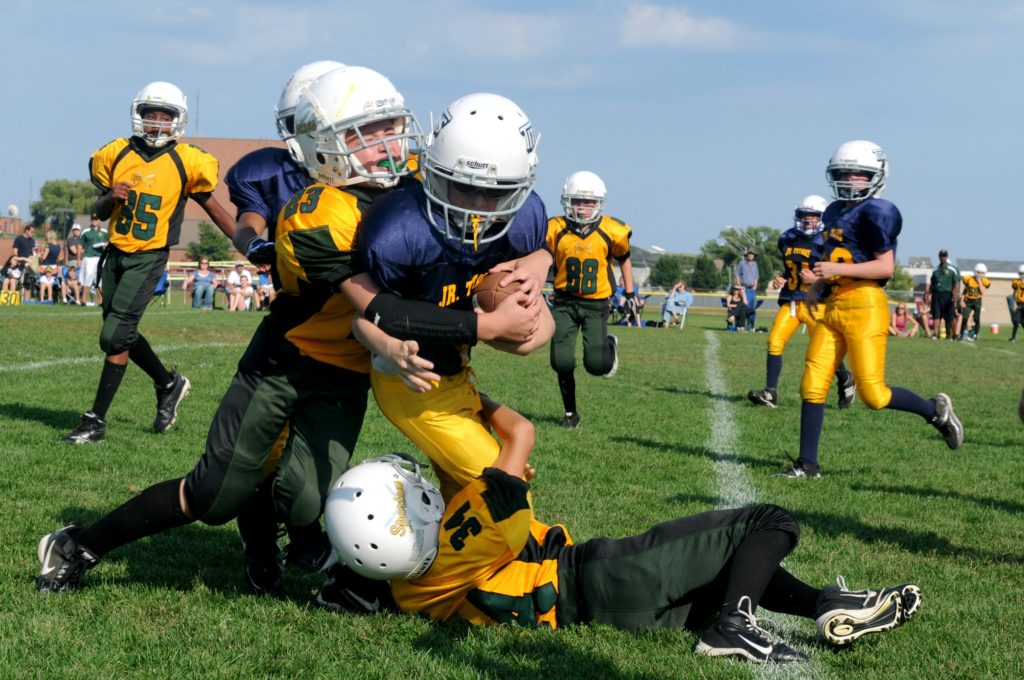For individuals engaged in professional athletics, sports represent more than just personal interest; they encompass a way of existence, a vocation, and a means of self-identification. These athletes devote their lives to attaining optimal physical performance, frequently surpassing the limits of human physiological capabilities. Nevertheless, within the realm of sports, injuries are an inherent peril, and their occurrence can have profound ramifications, impacting not only the professional trajectories of athletes but also their psychological welfare. This article delves into the significant ramifications of sports injuries on professional athletes’ careers and their psychological well-being.
The Significance of Professional Sports in a Competitive Environment:
Professional athletes function within a highly competitive milieu when the distinction between triumph and defeat can be quantified in minuscule increments of time or marginal differentials. These individuals devote several years of diligent effort and unwavering commitment in order to achieve the pinnacle of their respective fields. Athletes engage in intense competition at the most elevated echelons, frequently in the presence of worldwide attention, while being subject to the support of fans, sponsors, and their own personal aspirations that hinge upon their achievements.
The Profound Influence of Injuries on Career Trajectories:
Immediate Consequences: Sports-related injuries have the potential to abruptly terminate an athlete’s professional trajectory. An individual who sustains a torn ligament, a fractured bone, or a serious concussion may experience a prolonged duration of recuperation, rehabilitation, and obligatory withdrawal from competitive activities.
Long-term Consequences: Following the completion of physical recuperation, numerous athletes encounter enduring effects. The potential consequence of the injury could manifest as a decline in physical condition, velocity, or dexterity, so impeding an athlete’s capacity to perform at a comparable standard.
The phenomenon of retirement pressure in athletes arises when they are faced with the prospect of prematurely ending their careers due to prolonged or recurring ailments. This decision is frequently accompanied by emotional and psychological difficulties.
The financial ramifications of injuries can significantly impact the economic stability of athletes, especially in cases where contractual agreements are contingent upon performance or where athletes bear the burden of covering their own medical costs during the rehabilitation process.
The Impact on Mental Health:
The psychological consequences of sports-related injuries can have a significant and lasting effect on an individual’s mental well-being.
Depression and anxiety are commonly observed in athletes who are forced to be inactive due to injury. The experience of losing one’s sense of purpose and identity, along with the presence of physical discomfort, can have a detrimental impact on an individual’s mental well-being.
The phenomenon of identity crisis can manifest among athletes who experience a decline in their performance, leading to a challenge in defining their sense of self. Individuals may encounter difficulties when attempting to navigate the move from a sports-centered lifestyle to one that extends beyond athletic pursuits.
The experience of injuries can often lead to feelings of isolation. Athletes may have a sense of social isolation from their teammates and the sense of camaraderie that typically accompanies competitive sports.
The imperative to promptly resume participation in competitive activities, even prior to achieving complete recuperation, might intensify stress levels and contribute to the deterioration of mental well-being.
The topic of discussion pertains to coping mechanisms and resilience.
The presence of a robust support system comprising individuals such as family members, friends, coaches, and mental health experts is of utmost importance.
Goal Redefinition: Athletes may be required to reassess and redefine their objectives, encompassing both athletic pursuits and broader life aspirations, in order to accommodate and adjust to the altered circumstances following an injury.
The implementation of mental resilience training has been shown to assist athletes in effectively managing and adapting to challenging circumstances, hence fostering a constructive cognitive state.
The pursuit of therapy or counseling is a crucial component in the process of emotional rehabilitation.
In conclusion, it can be inferred that the evidence presented supports the stated hypothesis.
The significance of sports injuries on the careers and emotional well-being of professional athletes should not be underestimated. These individuals encounter distinct obstacles with regard to their identity, societal pressures, and societal expectations. However, they also exhibit exceptional resilience and perseverance. The ability to surmount the challenges posed by injuries serves as a demonstration of one’s resilience, underscoring the significance of prioritizing mental well-being and establishing robust support networks within the realm of professional athletics.


